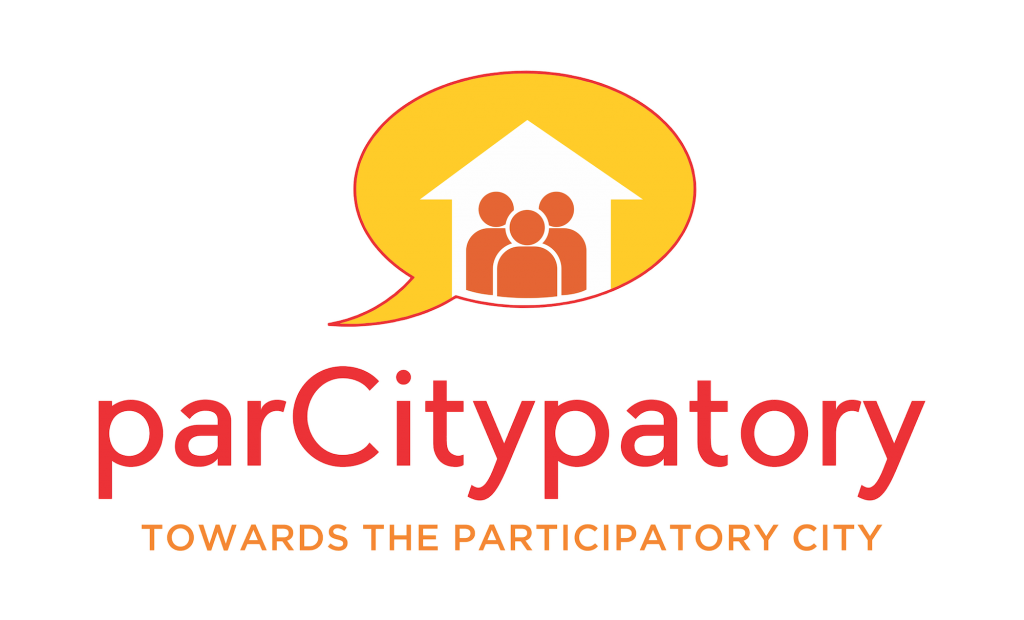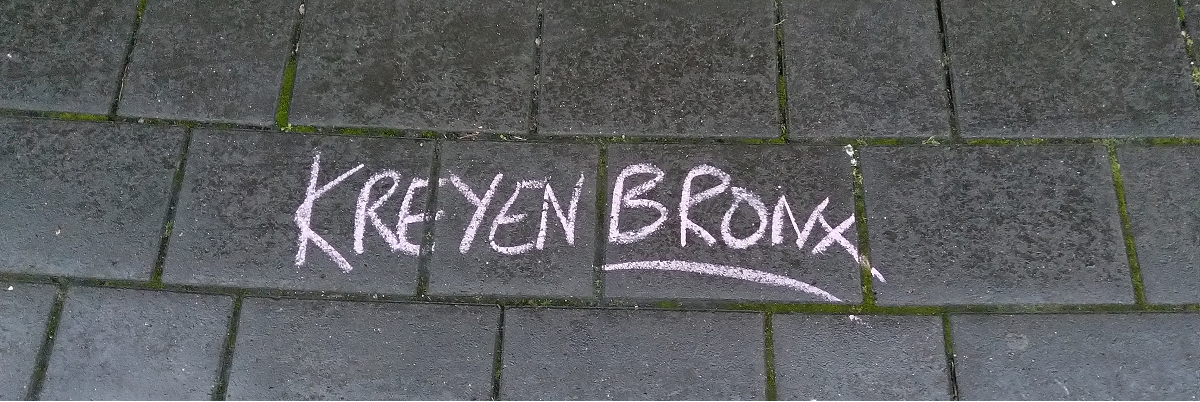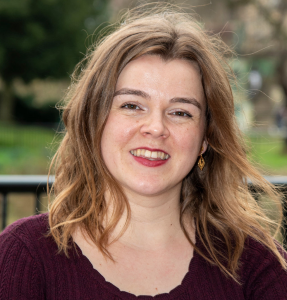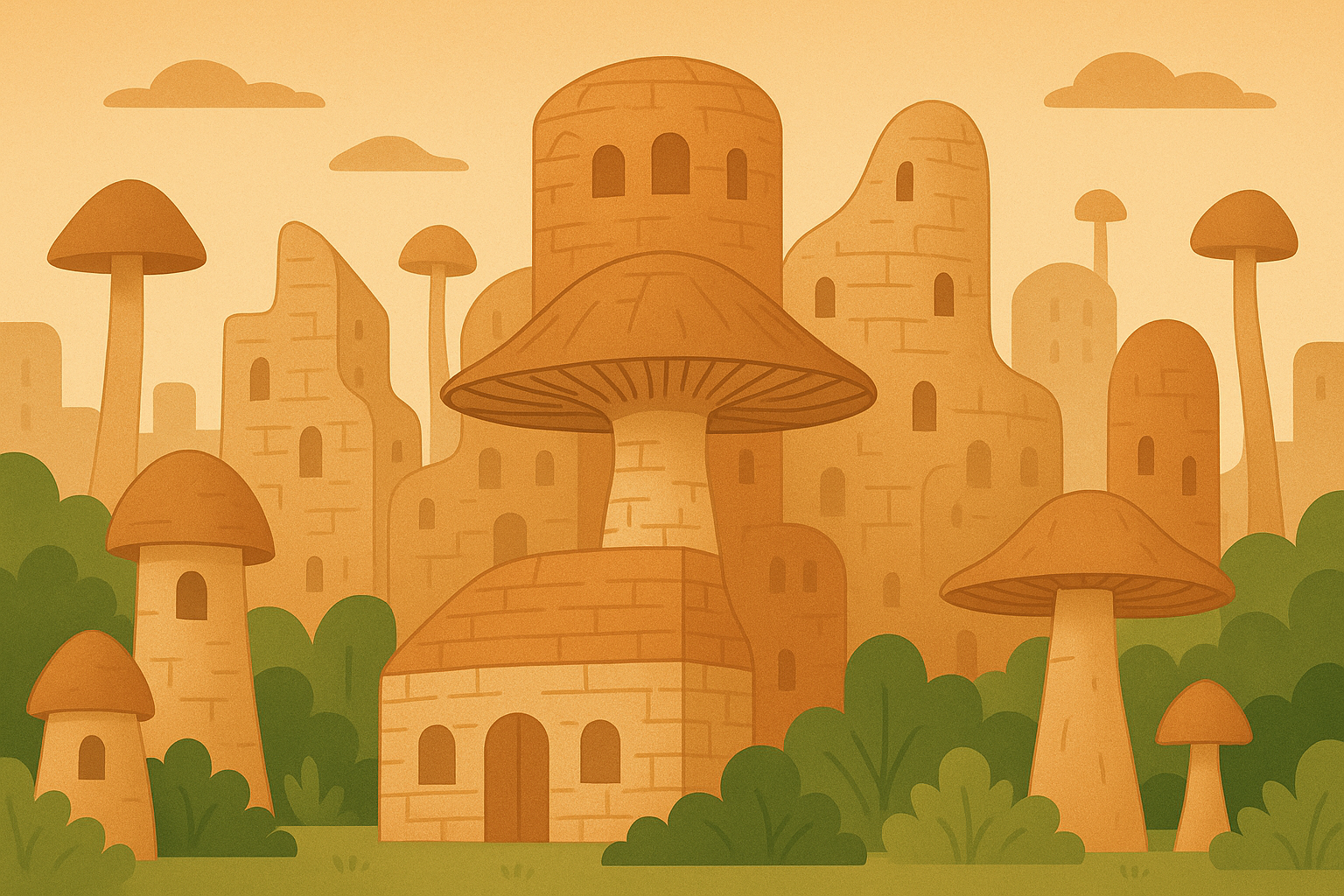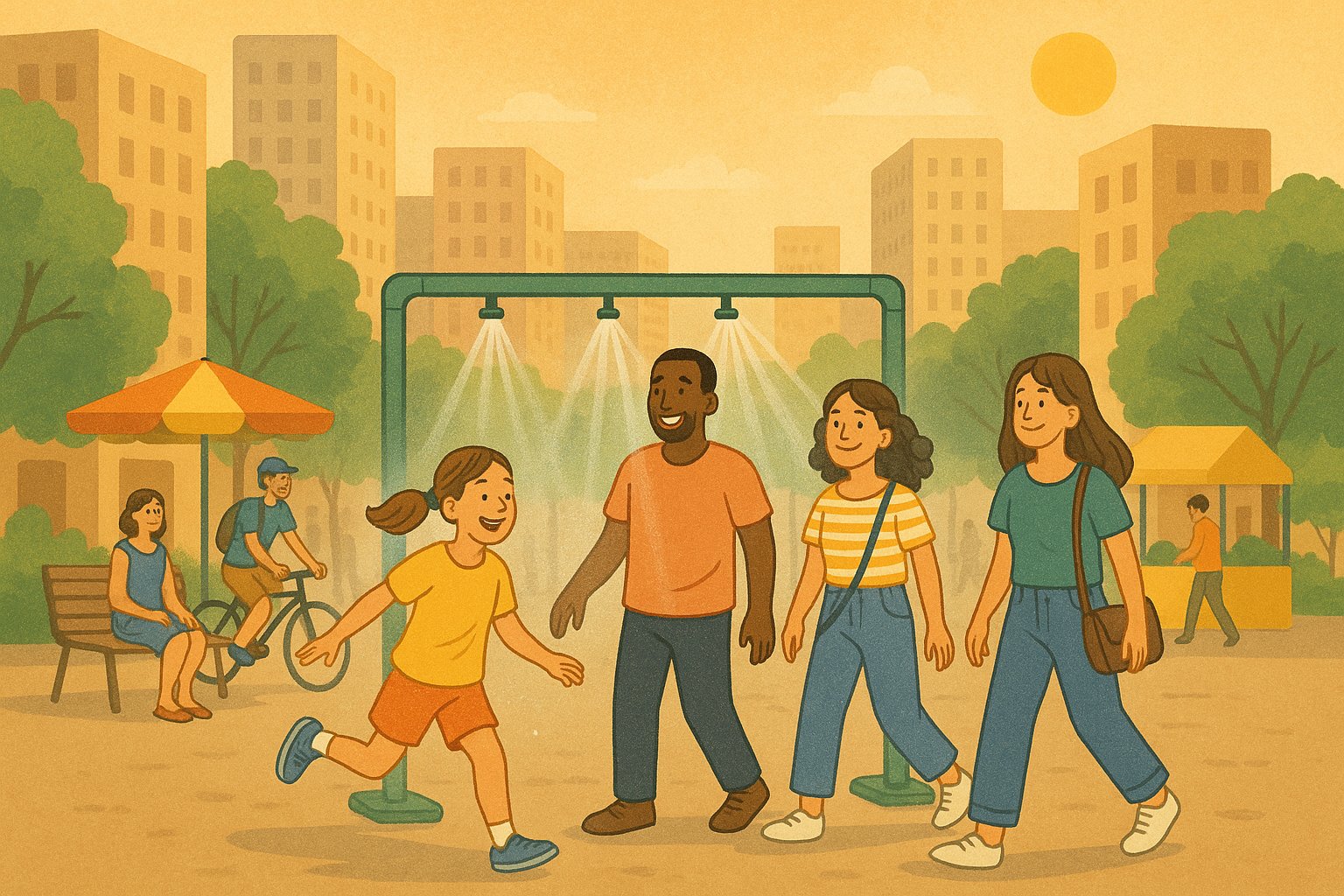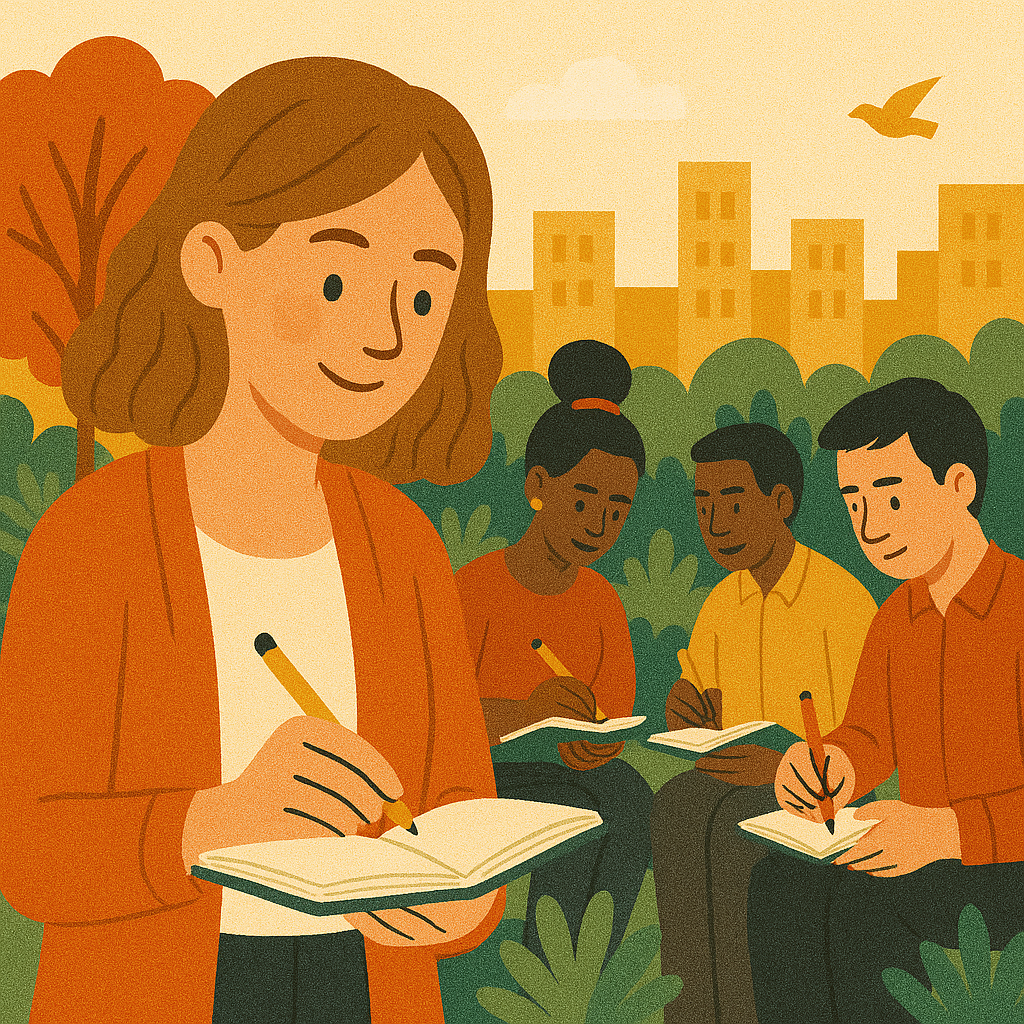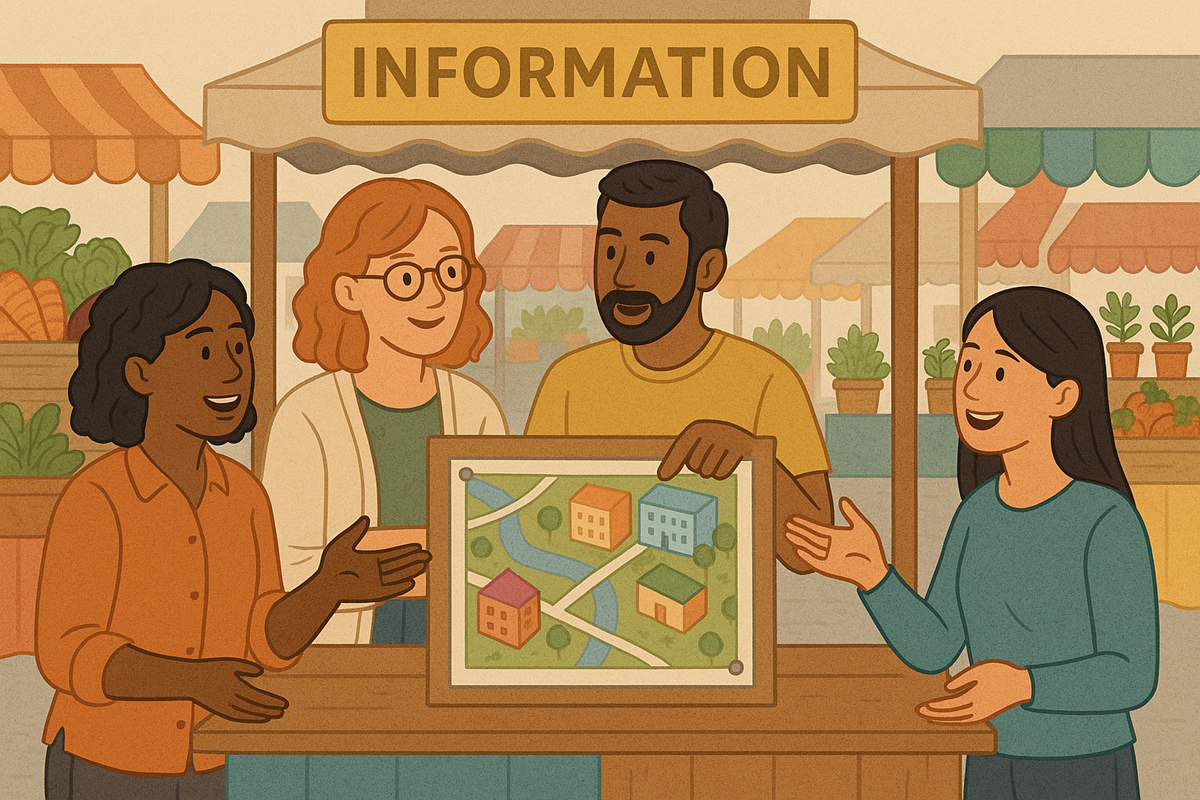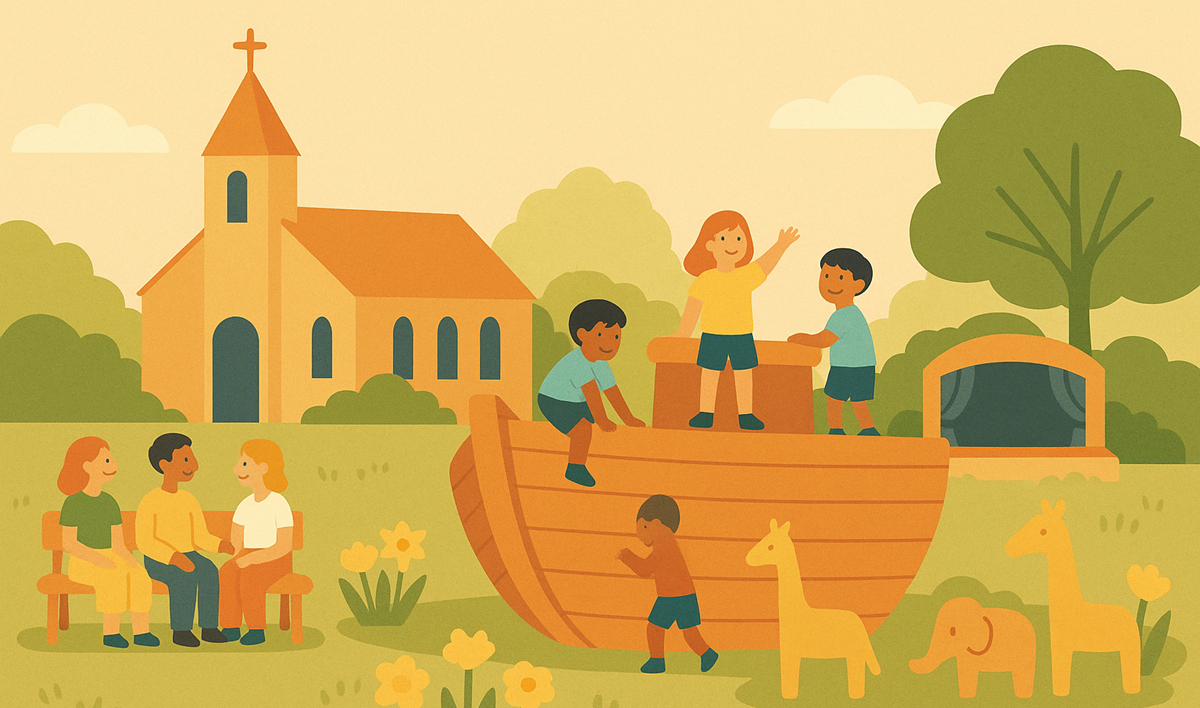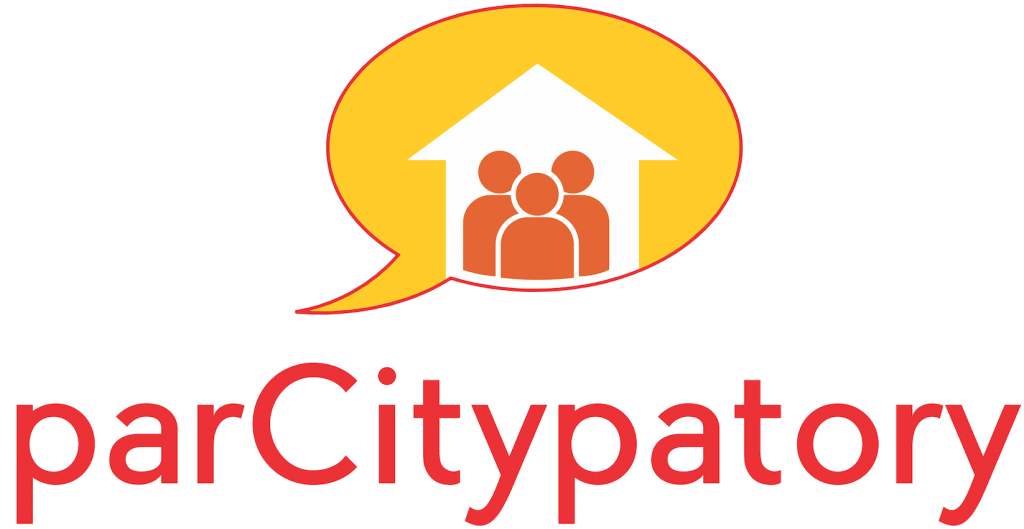I started off 2020 with a seminar on participatory tools and methods. It was organised by the Institute for Participatory Design (IPG, Institut für Partizipatives Gestalten) in Oldenburg, Germany. Among many fascinating sessions, we were asked to implement a small participatory intervention in order to gauge the attitude towards participation as well as potential problems in a poorer part of Oldenburg, which is called Kreyenbrück.
It is always a challenge to pick the right tool for participation, especially if you do not know the area and if there are language barriers. That is why we split into groups and each tried to get a feeling for this new place. We managed to overcome our concerns by thinking back to our days at school and settling for a very simple, but very efficient tool: chalk! In front of one of the busiest areas of Kreyenbrück, the main supermarket, we wrote down “Mein Kreyenbrück ist…” (My Kreyenbrück is…) and asked passers-by to add their thoughts. At first, there was some hesitation, but the more words we collected, the more people wanted to add their own vision of the neighbourhood.
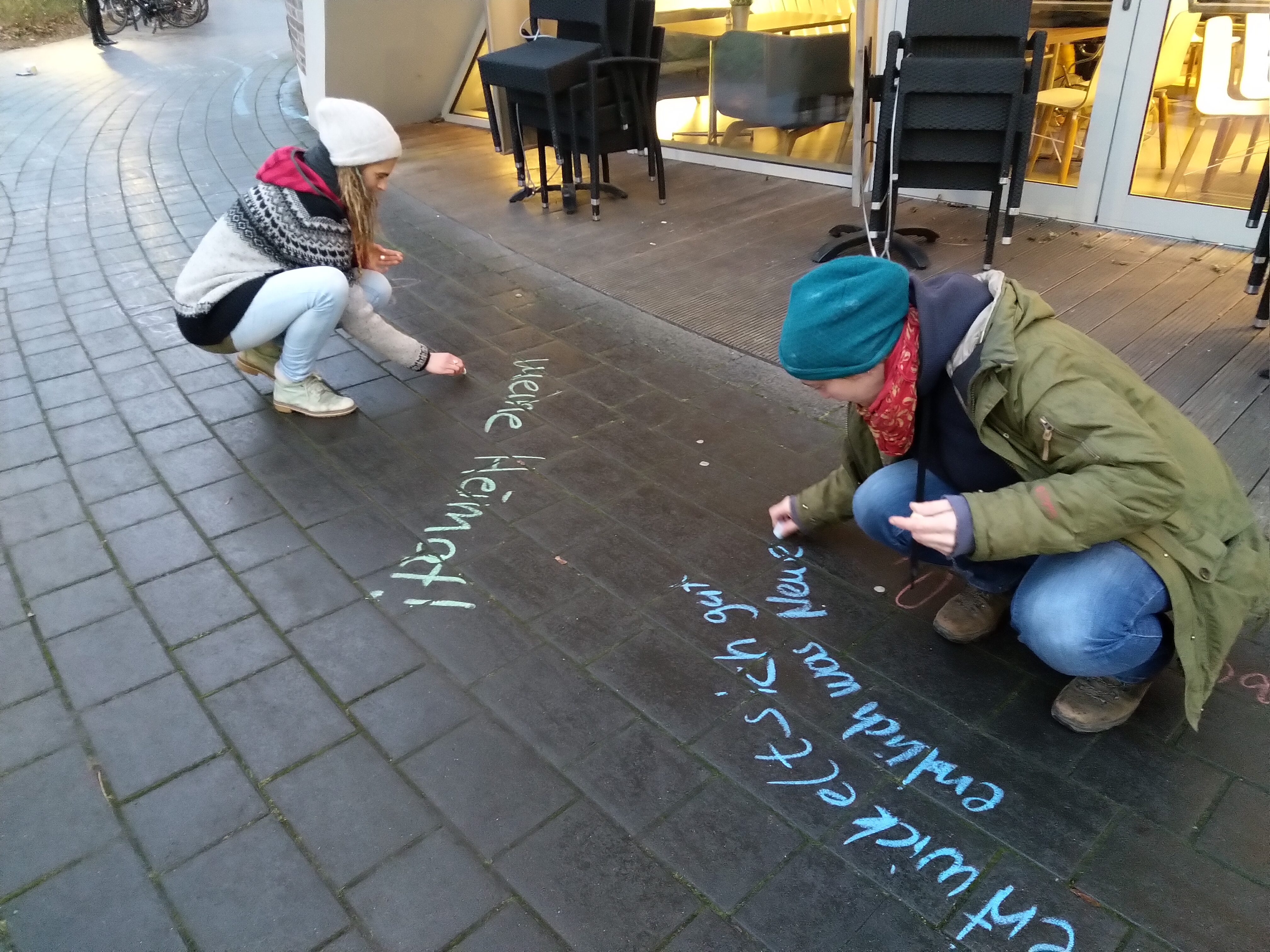
After only one hour, we ended up with a large collection of associative words, based on which it would be possible to organise a citizen’s forum or some other participatory event. Common words included “home”, “change” and “pretty”, whereas others used more negative terms such as “Kreyenbronx” or “ugly” to describe the neighbourhood.
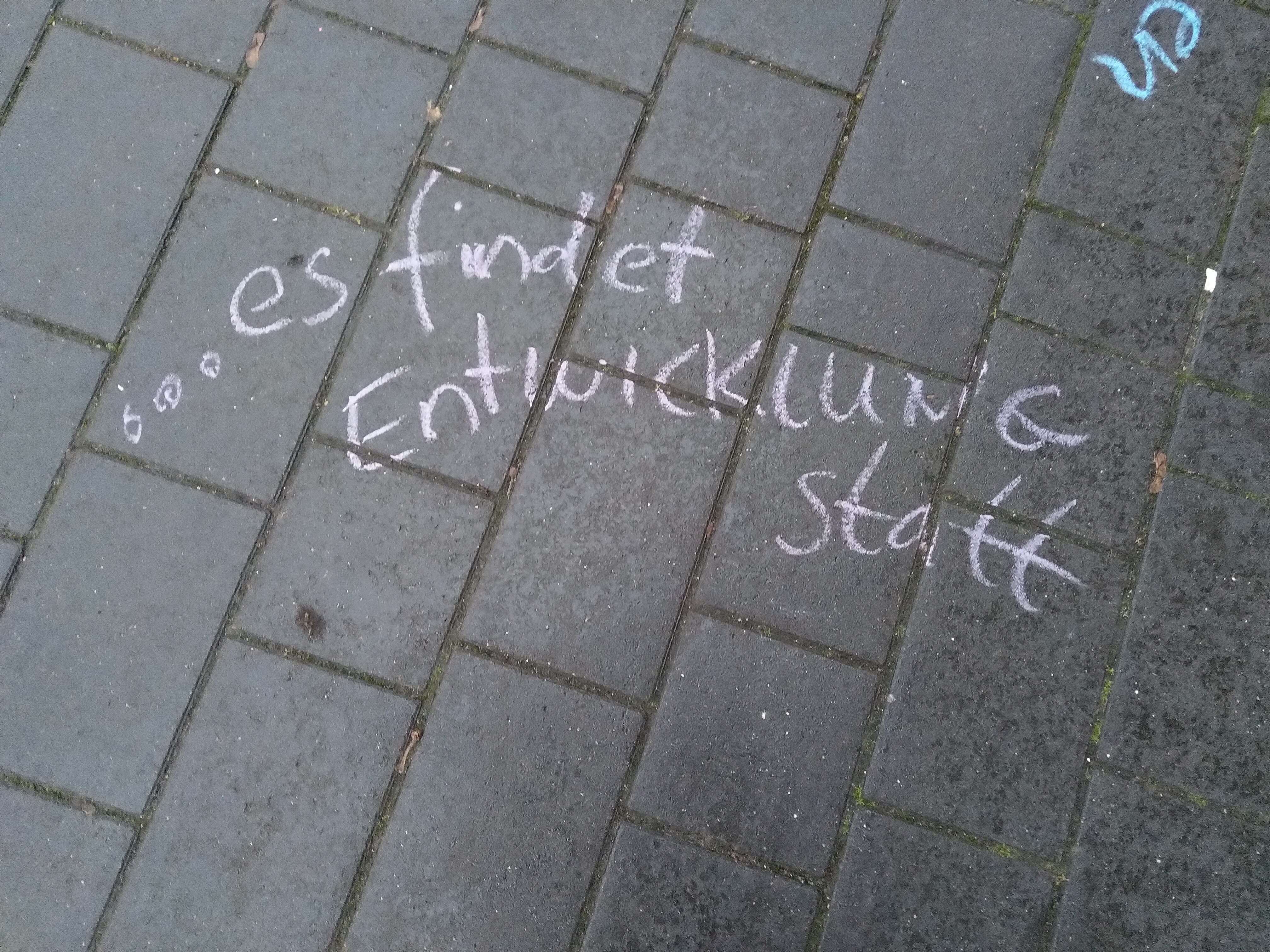
This format of “chalk talks” is a great tool to get a first impression of what is moving a neighbourhood. We learned the following lessons from it:
- Invite people with joy (“Hey, quickly tell me what your neighbourhood means to you!”) rather than pressure (“Do you have a minute?”)
- Use chalk as an inviting, easy and accessible means of writing – the fact that it will wash away or wear off can also be a big plus
- Document every word written + the process
- Have an answer for questions like “Who are you” or “What will you do with this?”
After the short intervention, we returned to our workshop and considered possible next steps. In the end, these will have to be taken by local organisations or citizens and the structure will look differently in every neighbourhood. However, we wanted to make the general accessible – feel free to use it under the terms of a creative common and let us know about your experience!
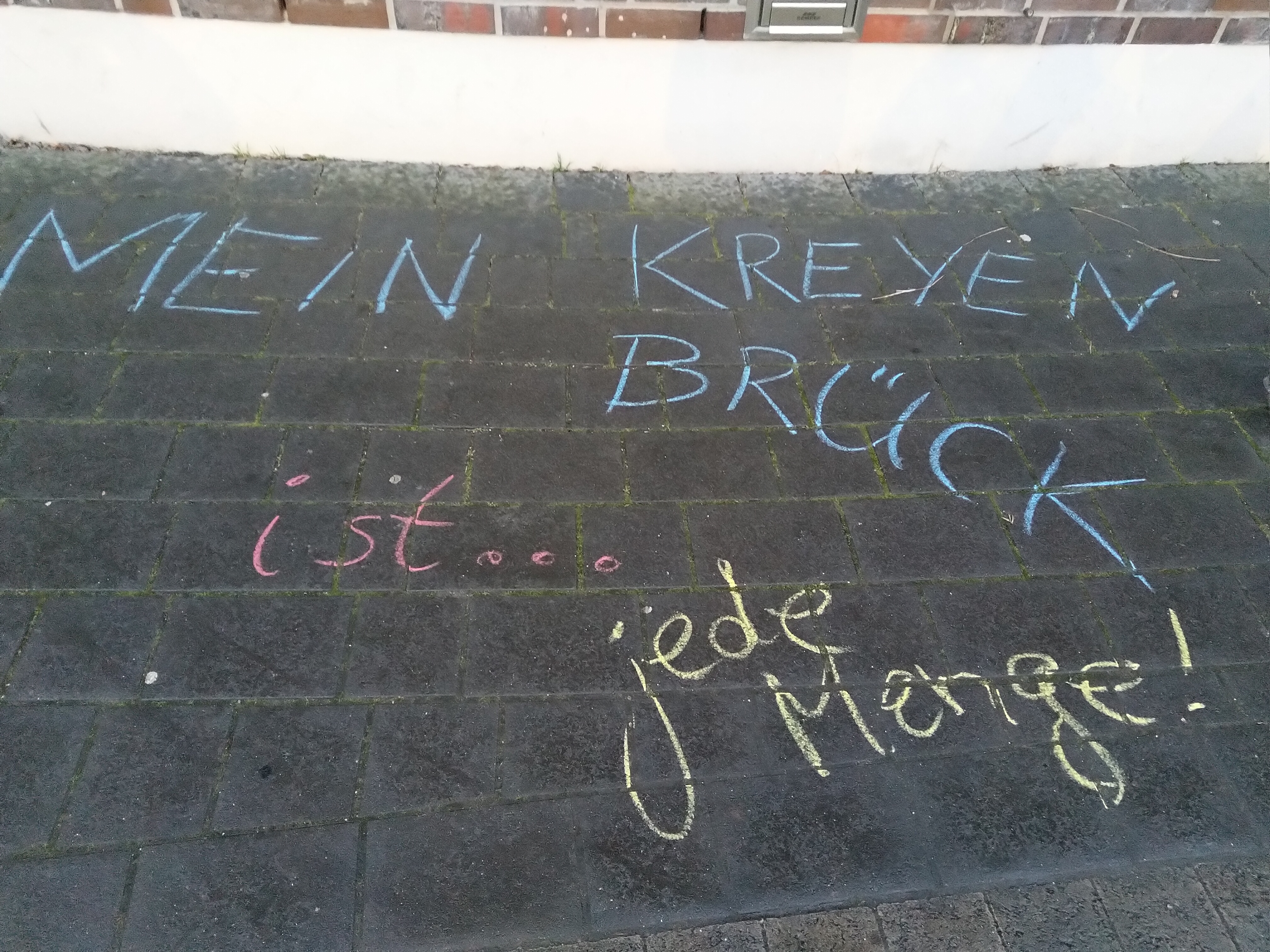
Basically, the Chalk Talk format could continue like this:
- Organise several pop-up chalk interventions with “chalk ambassadors”
- The ambassadors could then cluster the words and association and suggest some topics for discussion
- It is important to document the process and make photos etc. publicly available, for example online, in a newspaper or in a flyer with colourful pictures
- Once you share the results, you could also share an invitation with the general public of the neighbourhood to come join the ambassadors for a discussion of identified needs / stigmas (“Kreyenbronx”) or other upcoming topics
- In further participatory formats such as future workshops, you could take the next steps
Another great aspect of this participatory method is that it is really a lot of fun for everyone involved. The creative potential that starts to surface when you use chalk includes not only the participants, but also the organisers of the intervention. Have a go and listen to the chalk!
If you are looking to organise a participatory workshop in your neighbourhood – with or without using chalk – get in touch with me!
